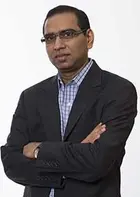Executive Fellows
Y-SIM Executive Fellows, leaders in their industries, serve as critical conduits, bridging the evolving dynamics of business and society with the academic environment. They offer fresh perspectives, expand our network, speak at signature events, and mentor students, helping to foster innovative thinking and real-world connections.

Alan Murray
WSJ Leadership Institute
Founding President
Fortune Media
Former CEO
Read Bio
Alan Murray is the founding president of the WSJ Leadership Institute, which was established to provide peer learning opportunities for corporate executives. The Institute includes The Wall Street Journal CEO Council, as well as the CFO, CMO, and CIO Networks.
Previously, Murray spent ten years at Fortune Media, where he served as editor-in-chief and then CEO. He was responsible for establishing Fortune as an independent company and is credited with turning around the 94-year-old media brand. While at Fortune, he wrote the CEO Daily newsletter and hosted the Leadership Next podcast. He also served for two years as chief content officer for Time Inc.
Before Joining Fortune, Murray spent two years as president of the Pew Research Center. Prior to that, he had a two-decade career at The Wall Street Journal, where he was Washington Bureau Chief and then Deputy Managing Editor, overseeing all digital, conferences, books and video operations. He also spent three years as Washington Bureau Chief for CNBC, where he cohosted Capitol Report nightly.
Murray is the author of five books, including, most recently, Tomorrow’s Capitalist: My Search for the Soul of Business. He is the recipient of the Ellis Island Medal of Honor, the Arthur W. Page Center Integrity in Public Communications award, and multiple journalism awards. He was a Morehead Scholar at the University of North Carolina, holds a MSc. degree in economics from the London School of Economics and completed the Senior Executive Program at the Stanford School of Business.
Faculty Fellows
Our multidisciplinary program attracts prominent scholars who lead research studies, co-host academic camps, incorporate Y-SIM insights into their teaching, guide the development of case studies, and present at workshops and conferences to advance dialogue on stakeholder innovation and management.

James N. Baron
William S. Beineke Professor of Management
Read Bio
Professor Baron’s research interests include human resources; organizational design and behavior; social stratification and inequality; work, labor markets, and careers; economic sociology; and entrepreneurial companies. Before coming to SOM in 2006, he taught at Stanford's Graduate School of Business from 1982-2006. At Stanford, he taught the MBA core course Human Resource Management. He was co-director of the Stanford Project on Emerging Companies (SPEC), a large-scale longitudinal study of the organizational design, human resource management practices, and financial and non-financial performance measures of entrepreneurial firms in Silicon Valley. Papers based on the project appeared in leading disciplinary journals, and an overview of the project in California Management Review won the 2003 Accenture Award for making “the most important contribution to improving the practice of management.”
He is the author, with Stanford economist David M. Kreps, of a textbook, Strategic Human Resources: Frameworks for General Managers (John Wiley & Sons, Inc.). Baron is also a regular contributor to leading sociology and organization journals, such as the American Sociological Review and Administrative Science Quarterly. His research has also been published in influential journals in economics and social psychology.

William Goetzmann
Edwin J. Beinecke Professor of Finance and Management Studies, Faculty Director of the International Center for Finance & Faculty Director of Asset Management Curriculum, M.B.A. for Executives Program
Read Bio
William N. Goetzmann is the Edwin J. Beinecke Professor of Finance and Management Studies and faculty director of the International Center for Finance at the Yale School of Management. He is an expert on a diverse range of investments. His past work includes studies of stock market predictability, hedge funds, and survival biases in performance measurement. His current research focuses on alternative investing, factor investing, behavioral finance, and the art market.
Professor Goetzmann has written and co-authored a number of books, including Modern Portfolio Theory and Investment Analysis (Wiley, 2014), The Origins of Value: The Financial Innovations that Created Modern Capital Markets (Oxford, 2005), The Great Mirror of Folly: Finance, Culture and the Crash of 1720 (Yale, 2013), and most recently, Money Changes Everything: How Finance Made Civilization Possible (Princeton, 2016). He teaches portfolio management, alternative investments, real estate, and financial history at the Yale School of Management.

Sang Kim
Professor of Operations Management and Senior Associate Dean for Centers and Executive Programs
Read Bio
Sang Kim is a professor of operations management at the Yale School of Management. Professor Kim specializes in supply chain management and service operations, with a particular interest in management of business process failures. He develops analytical models based on operations research and game theory to study practice-driven problems. His recent research interests include managing low-probability/high-impact disruptions in supply chains, sustainable operations, and social responsibility in supply chain management. Using the risk management framework, he has studied problems in application areas such as aftermarkets in the aerospace and defense industry, environmental regulation, and social enterprises in developing economies. Kim’s research has been published in top management journals including Management Science, Operations Research, and Marketing Science. Currently he serves as an associate editor at Management Science and Manufacturing & Service Operations Management. Professor Kim received his Ph.D. in operations and information management from the Wharton School, University of Pennsylvania; MS in scientific computing and computational mathematics from the Stanford University; and BA in physics from the University of Pennsylvania.

Nathan Novemsky
Professor of Marketing
Read Bio
Professor Novemsky is professor of marketing in the Yale School of Management and has an appointment as professor of psychology in the Department of Psychology at Yale University. He is an expert in the psychology of judgment and decision-making, an area that overlaps heavily with behavioral economics and consumer behavior. He has published articles in leading marketing and psychology journals on topics that include how people made judgments and decisions based on the information in front of them, how they know what they like, how the way they frame decisions affects the choices they make, how they choose and evaluate gifts, how their goals influence their behavior, and other topics in judgment and decision-making.
He teaches managers how to use the latest ideas from behavioral science, including how to give structure to unstructured situations and complexity in a way that maximizes their chances of making good long-term decisions. He also teaches about how to use algorithms and data analysis in the decision-making process in a way that allows people to contribute what they are best at and computers to contribute what they are best at.
He is also an active member of the Yale Center for Customer Insights. As part of the center, he actively partners with practitioners to develop new insights into customer behavior that are both relevant to practitioners and new to the academic literature. He has also consulted on numerous legal cases (including deceptive advertising and defamation) where a key issue is how individuals interpret information they see in the media and other contexts.

K. Sudhir
James L. Frank Professor of Private Enterprise, Management, and Marketing
Read Bio
K. Sudhir is James L. Frank ’32 Professor of Marketing, Private Enterprise, and Management and founder-director of the Yale China India Insights Program at the Yale School of Management, where he has been a faculty member since 2001. He is professor of economics (by courtesy) at the Yale Economics Department. He leads the academic-industry interface for quantitative marketing at the Yale Center for Customer Insights (YCCI). He has been a visiting fellow at various universities around the world including MIT, Toronto, HKUST, and INSEAD. He served as visiting fellow at Microsoft Research for the year 2020. Professor Sudhir served as editor-in-chief of Marketing Science, the premier journal in the field of quantitative marketing, from 2016-’21. During his term, he founded the Frontiers Section at Marketing Science. Previously, he had been an associate editor at all of the field’s leading quantitative marketing journals.
Sudhir’s substantive interests include customer relationship management, digital marketing and artificial intelligence, marketing organizations, and emerging markets. As a pioneer in the use of structural empirical methods in marketing, he developed fundamental models in the areas of customer management, salesforce management and compensation, organizational buying, and marketing channels. His papers use a wide range of methods including machine learning, quasi-experiments, field experiments, and game theory. Sudhir’s research has been honored with multiple best paper awards from all of the field’s leading quantitative marketing journals.
